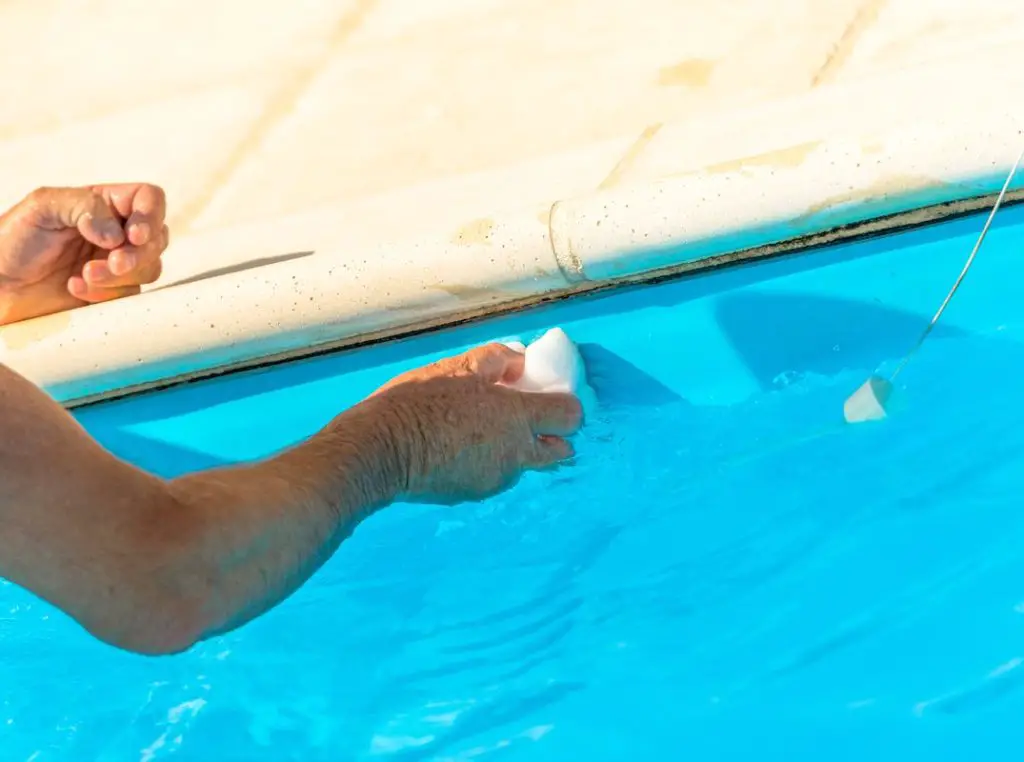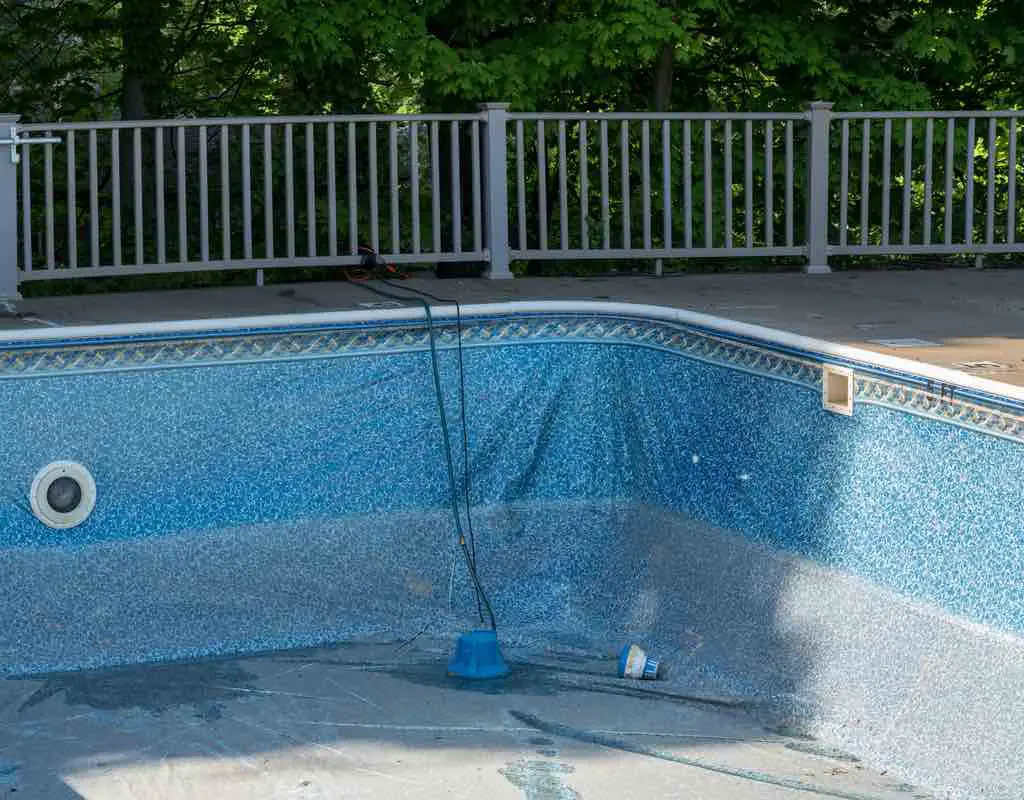Saltwater pools are a luxurious, gentle way to clean your pool and make your skin soft. But what if you have a vinyl liner pool? Can you still enjoy the benefits of salt water, or will it damage your liner?
You can have a saltwater pool with a vinyl liner. Saltwater can prolong the life of your vinyl liner due to the lower chlorine exposure. So long as you use a high-quality saltwater liner and take proper care of it, a saltwater pool is no problem.
Let’s take a look at what salt does to a vinyl liner and whether or not you can use salt in your pool.

What Is a Saltwater Vinyl Liner?
First and foremost, it’s important to know that not all vinyl liners are made the same. Some are more resistant to saltwater than others, so it’s important to do your research before making any decisions.
A saltwater vinyl liner is a type of liner that is specially designed to resist the corrosive effects of salt water. These liners are usually made of a thicker, more durable material that lasts longer and holds up well against salt water.
If you’re unsure if your liner is saltwater resistant, the best thing to do is check with the manufacturer. They will be able to tell you for sure and recommend the best course of action.
How To Care for Your Saltwater Vinyl Liner Pool
Even though saltwater pools are easier to care for, it’s still important to take some basic steps to protect your pool and extend the life of your liner.
First of all, be sure to rinse off any salt or chlorine that gets on your liner. These chemicals can dry out the material and cause it to crack over time.
It’s also a good idea to brush your pool regularly with a soft-bristled brush. This will help to remove any build-up of salt or other materials that could damage the liner.
Finally, be sure to check the pH level of your pool water regularly. Saltwater can make the water more acidic, which can eat away at the liner over time. By keeping an eye on the pH level, you can prevent this from happening.
When it comes to saltwater pools, saltwater-resistant vinyl liners, in general, are easy to use and maintain. These specially designed liners are built to resist the corrosive effects of salt, so you can enjoy all the benefits of saltwater without worrying about chlorine damage in your pools.
Just be sure to take some basic steps to protect your liner, and you’ll be able to enjoy your pool for years to come.
To protect your pool, you also need to deal with vinyl shrinkage. I’ve written an article about why vinyl liners gradually shrink and what you can do about it.
Things to Consider Before Purchasing a Vinyl Liner for a Saltwater Pool
Now that you know that it’s possible to have a saltwater pool with a vinyl liner, there are a few things you need to take into consideration before making your purchase.
Before you do anything, you will need to ensure that the liner you choose is saltwater resistant. Not all vinyl liners are created equal; some are more resistant to saltwater than others. Do your research and ensure that you choose a high-quality liner that can withstand harsh chemicals.
In addition, you need to consider the pH level of your pool water. As we mentioned before, salt water can make the water more acidic, which can eat away at the liner over time. By keeping an eye on the pH level, you can prevent this from happening.
You’ll also need to consider what kind of materials were used in the basic structure of your pool. If your pool is made of concrete, for example, the liner will need to be able to adhere to the surface. There are special liners designed specifically for concrete pools, so be sure to choose one of those if that’s what you have. Do Vinyl Pools Always Have Concrete Walls?
Finally, you need to think about the climate in your area. If you live in an area with a lot of sunlight, you’ll need to ensure that the liner you choose is designed to resist UV rays. The last thing you want is your liner to fade or crack after only a few months. A well-maintained liner should last you a little over a decade without too much trouble.
These are just a few things to remember when choosing a vinyl liner for your saltwater pool. By taking the time to consider your options, you can be sure that you’re choosing the right liner for your needs.
What Happens When You Use a Non-Vinyl Liner With a Salt Water Pool?
It’s important to note that you should never use a non-vinyl liner with a saltwater pool. The saltwater will quickly damage the liner, and it could even cause it to leak.
If you’re not careful, you could end up damaging your pool. You should only use a vinyl liner specifically for saltwater pools.
The Benefits of Saltwater Pools
Saltwater pools have a lot of great benefits. They are gentler on your skin and eyes, and they don’t require you to use harsh chemicals to keep the water clean.
Saltwater pools also tend to be easier to maintain. The salt helps keep the water clean and clear, so you won’t have to work as hard to keep it looking good.
In addition, saltwater pools can prolong your liner’s life if you have the right kind. The salt helps prevent algae and other growths from taking hold, which might eventually damage the liner.

The Bottom Line
When choosing a liner for a saltwater pool, choose one that is designed for a saltwater pool. The saltwater will quickly damage non-vinyl liners and could cause your pool to leak.
Do your research and choose a high-quality vinyl liner that is saltwater resistant. With a little bit of care, you can enjoy your pool for years to come.
